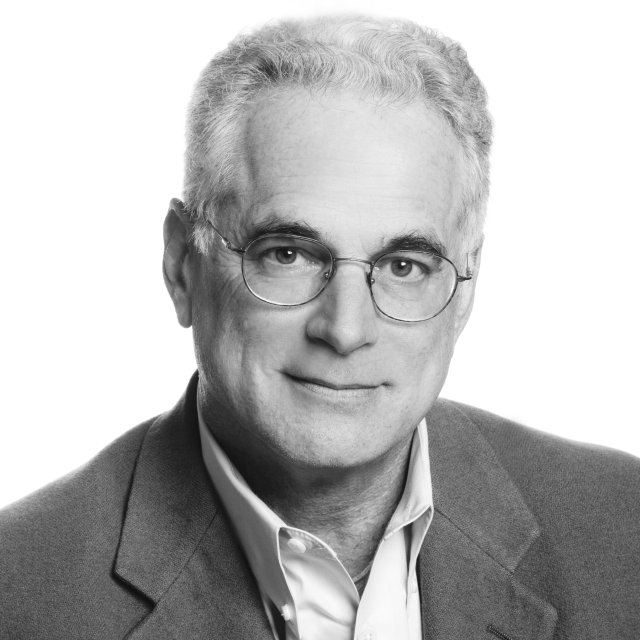When You're Bored Silly in Retirement

Ah, retirement! Playing golf whenever you like. Fishing when the mood strikes. Cocktails in the afternoon and barbequing on the patio. But what do you do when you try out retirement and you’re bored stiff?
Ask Ken Howard, 67, of Greer, S.C., who built a successful trash hauling business and sold it to Waste Management in 1997. “I was really looking forward to getting rid of all the everyday headaches that come from running a company,” Howard recalls. So he built a house on a golf course, but soon found that after “playing a good bit of golf I got bored.”
His retirement lasted about five months.
Howard then bought a car wash…and then another….and then another. He now has eight. He has also bought a septic pump business (largely run by his son and nephew) and owns a small real estate investment company.
“I still get excited about cutting a deal,” he says. “Doesn’t matter if it’s $200 or $200,000.” These days, Howard says, he spends a lot of time at his family’s lake house, “but when I am in town I’m usually at the office.”
Even Del Webb Got Bored
Former utility executive Jackie Hauserman, 72, took a retirement package in 1998 when her company, Centerior Energy, was bought. She moved from Ohio to Florida, first to Naples and then to Bonita Bay. Retirement didn’t take, so Hauserman got a real estate license in 2001, at 59, and has been selling for John R. Woods Properties ever since. “I have been really busy. It is fun,” she says.
Even Del Webb, developer of America’s most famous retirement community — Sun City, near Phoenix, Ariz. — couldn’t live the life of leisure. A 1962 Time cover story about him said: “Del Webb, the hulking, slope-shouldered, long-striding 63-year-old who hates to be called Delbert, could not stand the life in one of his own Sun Cities for more than a few days — or a few hours.” He preferred working.
Here’s the thing I’ve learned while researching my new book, Unretirement: Most people desire to live their third age doing something between full-time work and full-time golf. And many new retirees find themselves easily bored without working part-time, even if they don’t need a paycheck.
Certainly, that sentiment was repeatedly expressed at a recent talk I gave at Verrado, a new multigenerational development outside Phoenix, where residents found the initial joy of sleeping in and enjoying an early cocktail faded with time. All were now working part-time or looking for the right retirement job.
The Shock of the New
The swing from racing to embracing leisure to seeking work isn’t really surprising. Put it this way: You spend many years holding down a full-time job (or multiple part-time jobs), so freedom from bosses and job stress is liberating at first. Many people have a bucket list of delayed projects and postponed travel, too. But… Your career and the expertise you’ve built up over a lifetime are also a big part of who you are.
So putting it all behind you can be a shock.
“After awhile, you then wake up and something isn’t quite right,” says Joel Larsen, a certified financial planner at Navion Financial Advisors, in Davis, Calif. “Successful retirement means finding fulfillment and meaning. And a lot of fulfillment and meaning comes from being good at what you do.”
4 Myths of Aging and Retirement
His insight echoes the results from the recent Merrill Lynch survey, Work in Retirement: Myths and Motivations, Career Reinventions and the New Retirement Workscape.” Conducted in partnership with Age Wave, the demographic consulting firm, the survey disputes four popular myths about aging. They are:
- Retirement means the end of work
- Retirement is a time of decline
- People only work in retirement because they need the money (the reality: meaning and purpose matter, too)
- New career ambitions are only for young people
I’ve grown convinced that most people need to take a break from their careers — they need to retire — before they can Unretire. It takes a break to figure out the next stage.
Adopting a Fresh Perspective
“You have to get out of the work mindset and take a fresh perspective,” says Ellen Griggs, 59, an excellent example of someone who has taken deliberate steps toward Unretirement.
Griggs had a successful career in finance with some storied firms (Paine Webber and Strong Capital Management among them) as Chief Investment Officer, Chief Operating Officer, Client Advocate and Investment Consultant. In 2011, at 56, Griggs took a year off, traveling spending time with her family and working on a 160-year-old home on Cape Cod.
She also hooked up with Boston-based New Directions, a career transition organization focused on helping executives and professionals figure out what’s next. “During my career I had never been introspective about what I was going to do when I retired,” she says. With New Directions, “I got to kick the tires.”
She’s since ended up filling her days with a mix of for-profit and not-for-profit activities, including being a member of the philanthropic trust board at the Boston Medical Center and a board director at Evanston Capital.
How to Beat Boredom in Retirement
So, what should you do when playing golf isn't enough and you want more meaning and purpose in retirement?
Reach out. Talk to your network of friends and former colleagues who know your skills and strengths; ask them what they think you should do next.
If you’ve decided what field you’d like to migrate into, part-time, attend a local industry meeting and find out how others made their transition. This is a low-cost way to glean information and make contacts.
Potentially even more powerful is hooking up with similarly challenged retirees who’ve decided to put their leisure days aside.
For instance, Experience Matters in Phoenix matches talented private sector workers looking for their next act with community-based nonprofits. Similarly, Shift is a Twin Cities-based organization with a goal of guiding midlife life transitions toward "purpose, passion and a paycheck." And the Encore Fellowships Network is another path for experienced professionals who want to devote time at social-service organizations.
Another resource: your local community college. These schools are creating courses and meeting spaces for boomers looking for a next act. You can look up programs near you at the website for the American Association of Community Colleges’ Plus 50 program.
It's a safe bet that in coming years, people will talk less about golf and leisure in retirement and more about preparing for a new stage of productive and creative work in their Unretirement.
Chris Farrell is senior economics contributor for American Public Media’s Marketplace and author of the forthcoming Unretirement: How Baby Boomers Are Changing the Way We Think About Work, Community, and The Good Life. He writes about Unretirement twice a month, focusing on the personal finance and entrepreneurial start-up implications and the lessons people learn as they search for meaning and income. Tell him about your experiences so he can address your questions in future columns. Send your queries to him at cfarrell@mpr.org. His twitter address is @cfarrellecon.
More from Next Avenue:
What Retirement Is Really Like
